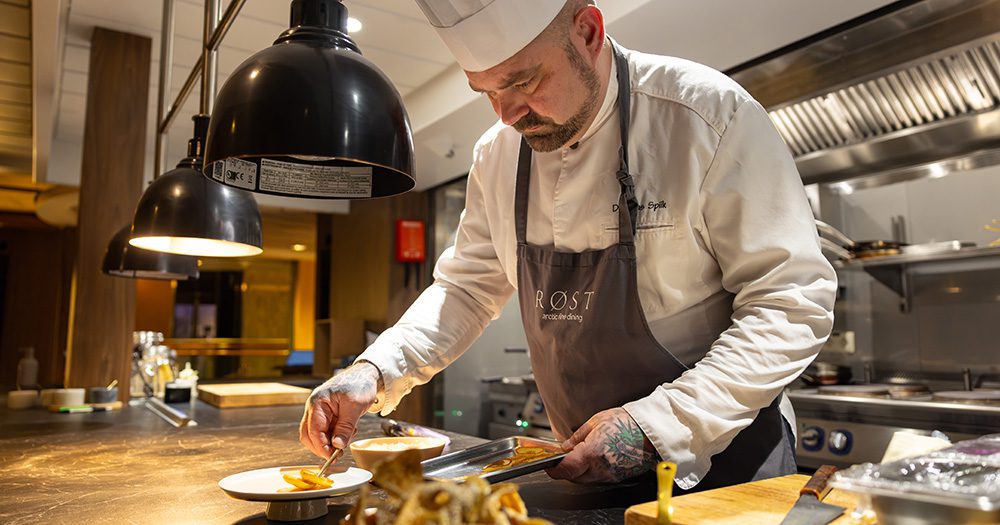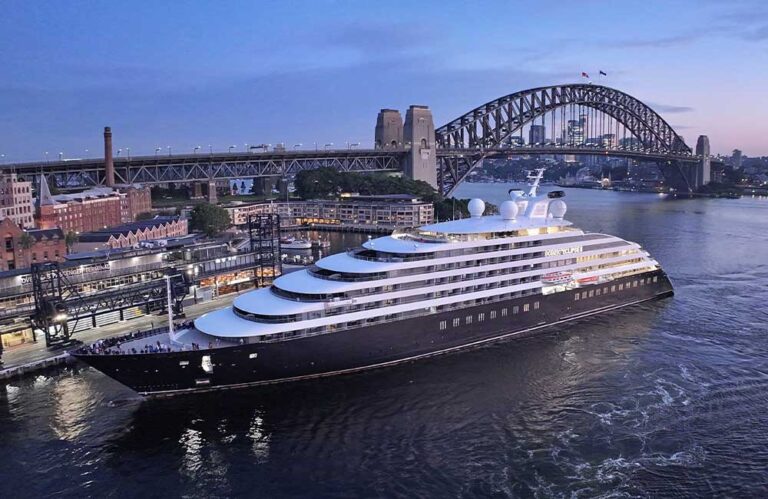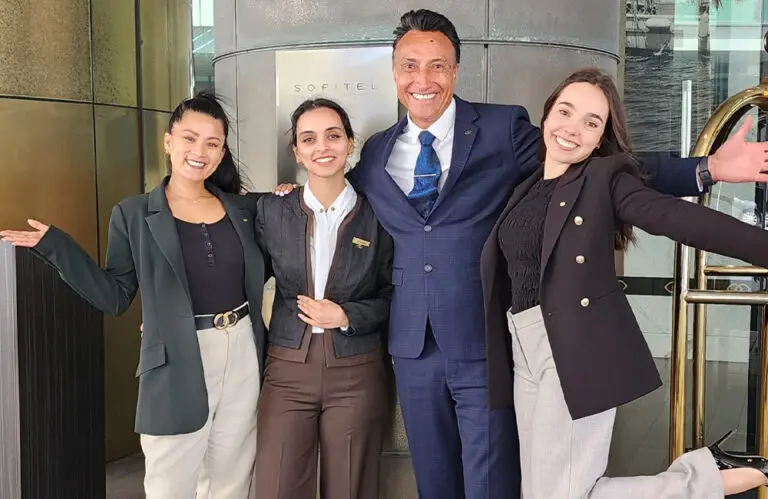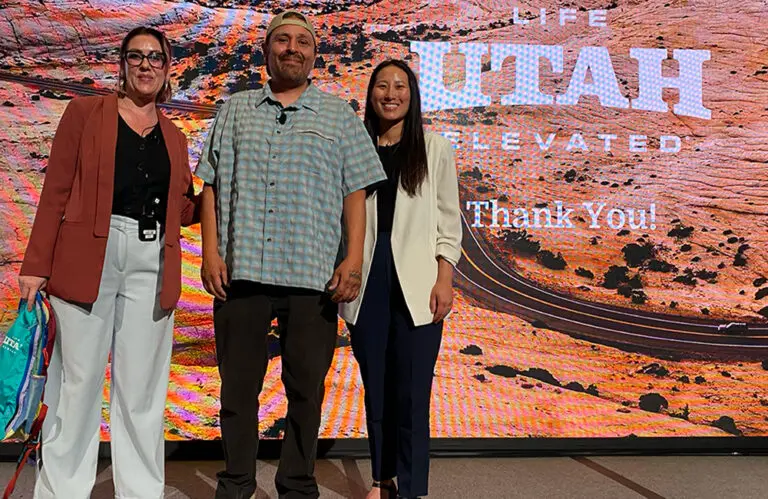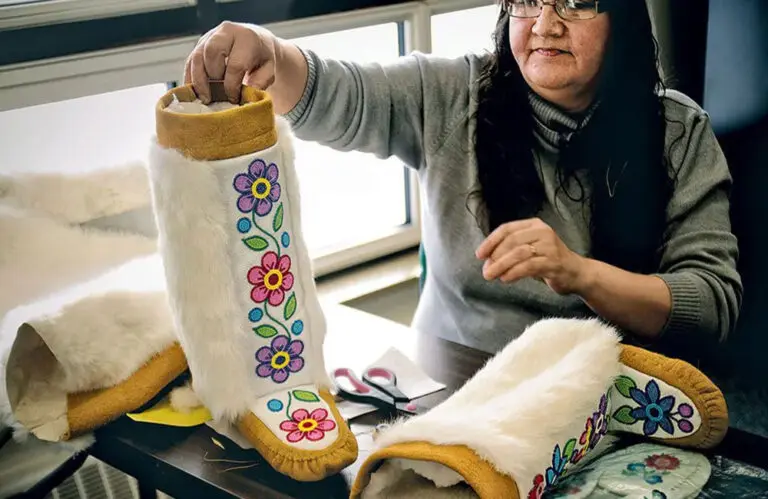Hurtigruten continues its sustainability journey with a new program that taps into the circular economy model by recycling edible food waste into compost, which will then be used to grow vegetables for its cruise ships and continue the eco cycle.
The new initiative aligns with the company’s core values of environmental responsibility and ethical business practices to address the challenge of edible food waste.
Starting with its Original Coastal Express ships, Hurtigruten will sort food waste on board before transporting it to a specially designed compost reactor at Stamsund Harbour during scheduled stops.
The resulting fertiliser then goes to Myklevik Gård, a farm in Stamsund, Lofoten where it will enhance soil quality to grow vegetables for Hurtigruten ships’ menus.
Embarking on the challenge of food waste
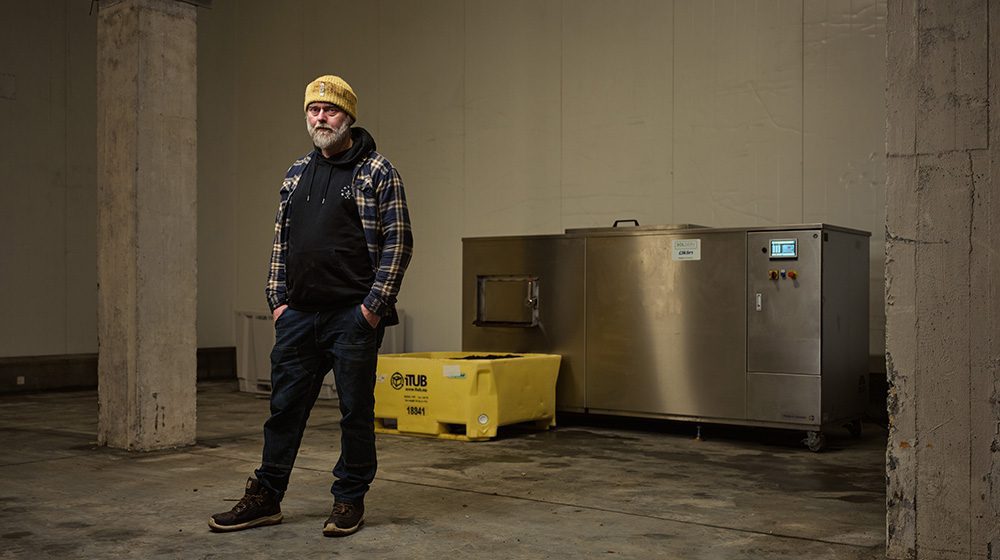
After five years of dedicated efforts, Hurtigruten has reduced its edible food waste, dropping from 261 grams per passenger in 2019 to 66 grams per guest in 2023.
Hurtigruten Chief Product Officer André Pettersen said the fleet-wide food program, Norway’s Coastal Kitchen, emphasises ‘Reduce, Reuse and Recycle’ through smaller portion sizes, repurposing leftovers and now by converting waste into compost to produce food to complete the cycle.
“Our ultimate goal is to reduce edible food waste towards practically zero grams per guest,” he said.
“Through collaboration and innovation, we are proud to shape the way towards a more sustainable future within travel globally.”
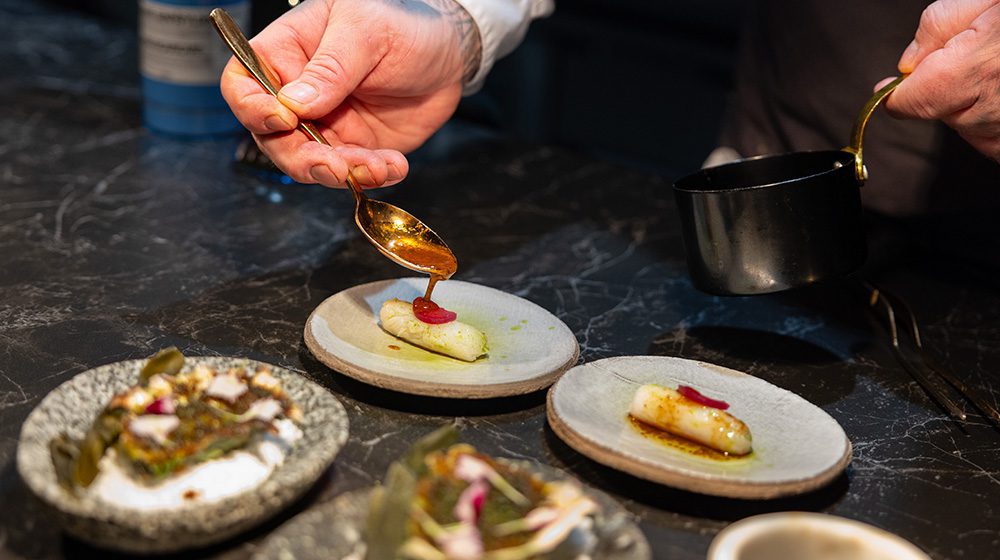
Hurtigruten Managing Director Asia-Pacific Damian Perry said the company’s customers are increasingly interested in reducing their impact while travelling.
“Over the past five years, there’s been a big shift regarding the importance of living our lives more sustainably,” he said.
“This initiative speaks directly to the increasing number of our guests who are actively looking for ways to travel more sustainably and responsibly, and we hope it will serve as a benchmark for other operators.”
For more info, head to hurtigruten.com


